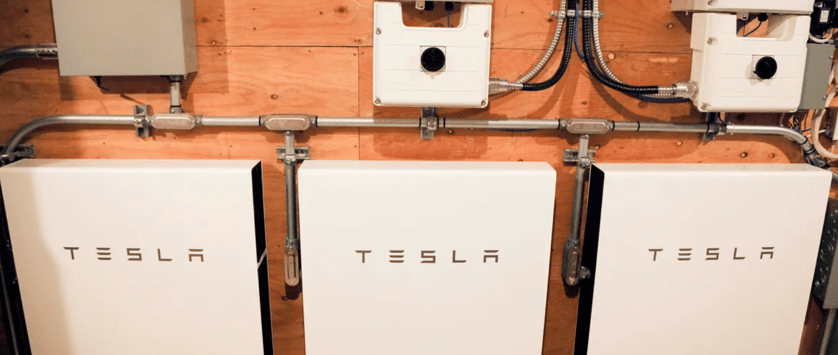Uninterrupted Energy: The Solar-Powered Solution for Short and Long-Term Outages
In a modern world heavily reliant on continuous power, outages can disrupt daily life and essential services. Whether caused by storms, grid issues, or maintenance, these disruptions underscore the importance of dependable backup solutions. Solar power emerges as a steadfast, renewable solution for both short and long-term outages. This article navigates the benefits, practicalities, and considerations of utilizing solar energy to ensure a consistent power source when you need it most.
9/14/2023


Table of Contents
Introduction
Empowering Homes with Solar-Powered Resilience
Advantages of Solar Power as a Backup Solution
Critical Considerations for Effective Solar Backup Systems
Solar Backup Systems in Action
Planning Your Solar-Powered Preparedness
Empowering Homes with Sustainable Energy
Introduction
In a modern world heavily reliant on continuous power, outages can disrupt daily life and essential services. Whether caused by storms, grid issues, or maintenance, these disruptions underscore the importance of dependable backup solutions. Solar power emerges as a steadfast, renewable solution for both short and long-term outages. This article navigates the benefits, practicalities, and considerations of utilizing solar energy to ensure a consistent power source when you need it most.
Empowering Homes with Solar-Powered Resilience
Solar power systems employ photovoltaic (PV) panels to capture sunlight, converting it into electricity via an inverter. When grid-connected, excess energy can be stored in batteries or returned to the grid. In the context of power outages, solar power plays two vital roles:
Short-Term Outages: Solar energy instantly converts and powers essential appliances, ensuring uninterrupted energy flow during brief disruptions.
Long-Term Outages: Battery storage systems stockpile excess solar energy, enabling sustained power supply over extended periods without grid access.
Advantages of Solar Power as a Backup Solution
Dependable Reliability: Solar energy is a constant resource, even during daylight hours. During outages, it seamlessly powers critical appliances like refrigerators, medical devices, and communication equipment.
Energy Autonomy: Solar-powered backup systems empower homeowners to be self-reliant. Instead of relying on external sources, you secure an independent energy supply that remains unaffected by grid failures.
Environmental Stewardship: Solar power's environmental benefits extend to backup scenarios. It's a clean, renewable source that doesn't contribute to pollution or environmental degradation.
Economic Efficiency: Over time, solar backup systems yield substantial savings. Generating your electricity decreases reliance on utility companies, leading to long-term cost reduction.
Minimal Maintenance: Solar systems require minimal upkeep. Regular cleaning and inspections ensure uninterrupted efficiency and longevity.
Stored Energy Solutions: Combining solar panels with energy storage systems lets you store surplus energy. These stored reserves offer consistent power during cloudy days or prolonged outages.
Critical Considerations for Effective Solar Backup Systems
Determining Solar System Size: Assess the energy needs of essential appliances to size your solar system accurately. Factors include lighting, refrigeration, and communication devices.
Battery Storage Capacity: With battery storage, choose a capacity that aligns with your power consumption. Larger batteries offer extended backup durations.
Battery Longevity: Batteries degrade over time, affecting their backup capacity. Opt for quality batteries from reputable manufacturers for durability and optimal performance.
Expert Installation: Proper installation of solar systems, particularly those with battery storage, requires technical skill. Hiring professionals ensures correct setup, integration, and safety compliance.
Monitoring and Maintenance: Regularly monitor your solar backup system's performance and implement maintenance routines. Inspect batteries for any signs of deterioration.
Local Regulations: Research local regulations and grid connection policies that might affect solar backup system usage. Compliance ensures smooth operation and adherence to legal standards.
Solar Backup Systems in Action
Short-Term Outages: Solar panels, connected to a backup inverter, instantly power essential appliances. A transfer switch seamlessly switches from the grid to solar power during outages.
Long-Term Outages: Battery storage systems stockpile excess solar energy for extended use. Solar panels recharge batteries during the day, supplying stored energy during the night or low-light periods.
Planning Your Solar-Powered Preparedness
Evaluate Energy Needs: Identify essential appliances and devices for backup power. Calculate their energy consumption to determine the appropriate solar system and battery storage capacity.
Allocate Budget: Consider upfront costs of solar panels and battery storage, factoring in long-term savings and benefits.
Expert Guidance: Consult solar experts to assess solar potential, energy requirements, and suitable backup solutions. SolarLesson.com connects you with trustworthy solar companies for professional guidance.
Battery Selection: Choose reliable, high-quality batteries that align with your backup needs and offer optimal efficiency.
Installation Expertise: Experienced professionals ensure correct solar panel, inverter, and battery installation. Proper setup guarantees seamless operation and adherence to safety standards.
Empowering Homes with Sustainable Energy
In a world confronting the challenges of climate change and energy transition, solar power shines as a beacon of hope, providing reliable backup solutions for both short and long-term outages. By embracing solar energy, you're not only securing your home's energy needs but also contributing to a cleaner, more resilient future.
Solar-powered backup systems offer reliability, energy independence, and environmental advantages. They're pivotal in steering us towards a future where sustainable energy plays a central role. Explore solar backup solutions, assess your needs, and collaborate with experts to craft a reliable, renewable energy source that ensures your home remains powered, connected, and resilient in the face of uncertainty.


